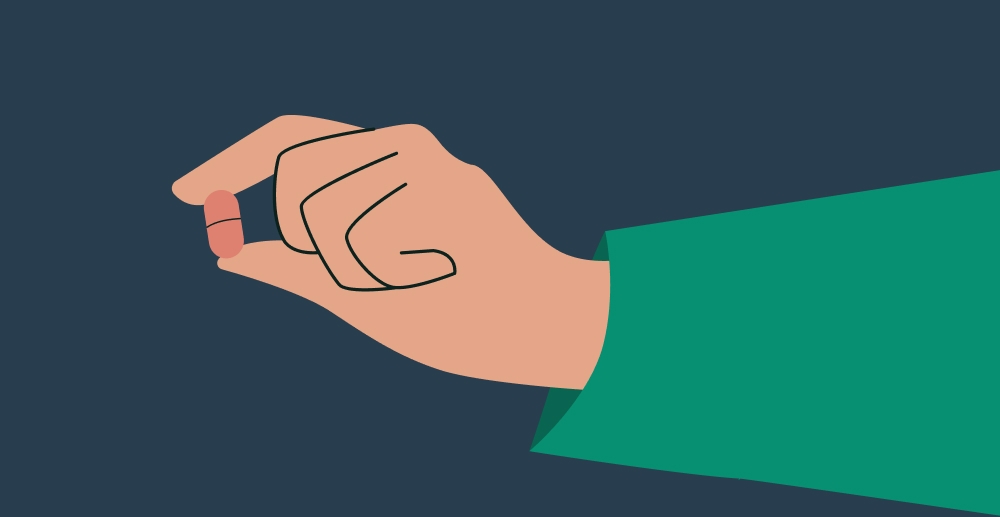So you’re thinking about starting naltrexone for an alcohol use disorder, good for you! Before you start, your clinician will ask you about whether you use an opioid. Here’s why.
Naltrexone and Suboxone
First let’s get into some semantics, naltrexone is not the same drug as naloxone. Naloxone is a lifesaving drug that is used to reverse the potentially deadly symptoms of opioid overdose. Naloxone, which can be administered as either an injection or a nasal spray, is NOT a long-term treatment for any substance use disorder by itself. It is, however, combined with buprenorphine in Suboxone, Zubsolv, and other buprenorphine/naloxone products. Naltrexone, on the other hand, is NOT used to reverse an overdose by is used for long-term treatment for both alcohol use disorder (AUD) and opioid use disorder (OUD). Naltrexone comes in a pill (ReVia or Depade) or a monthly injection (Vivitrol). At Workit Health, clinicians prescribe ReVia, Depade, and generic naltrexone for AUD.
Naltrexone (not naloxone) has been FDA-approved to treat AUD since 1994. It is also approved to treat OUD. The other two approved OUD treatments buprenorphine and methadone, do not treat AUD. Naltrexone is able to treat both AUD and OUD because it is an opioid antagonist (naloxone is also in this category but don’t get them confused).
So what’s an opioid antagonist?
While we all know about opioids like heroin and oxycodone, did you know that your body makes it own opioids? Yes! These own-opioids are at work in your body all the time and bind to the four types of opioid receptors in the brain (mu, delta, kappa, and ORL-1). Heroin and other opioid drugs bind to the mu receptor just like your own-opioids to cause the pain relief, euphoria, and respiratory depression that is associated with opioids. While alcohol does not bind to the opioid receptors directly, our own-opioids released when we drink alcohol and it is thought that the opioid receptor system is thought to play an important role in AUD.
Naltrexone binds to the four types of opioid receptors but instead of activating them like an opioid would, it blocks the effect of the opioids floating around in the body. It is this blocking effect is why you shouldn’t take opioids while you are on naltrexone.
Let’s say you are taking naltrexone to help you quit alcohol.
Tiny naltrexone molecules are bonded to your opioid receptors, reducing your cravings for booze. Then let’s say that, for any number of reasons, you take an opioid. Because the naltrexone is bonded to your opioid receptors, it blocks the effects of the opioid. You won’t feel anything, no high and no pain relief. This can be dangerous for two reasons. First, because a person feels nothing when they take their normal dose of opioid, they make take more (DO NOT DO THIS). Eventually, a high dose of opioids will be able to overcome the blocking effect of naltrexone and bond to opioid receptors. However, the body has not built up a tolerance to this higher dose and a potentially fatal overdose occurs. Second, once you stop naltrexone, your body will likely have a lower tolerance for opioids, meaning that even your normal dose might lead to an overdose.
If you take an opioid medication for pain or if you struggle with opioid misuse or addiction, talk to your healthcare provider if you are interested in starting naltrexone for alcohol use disorder. Naltrexone is not for everyone but there are other FDA-approved medications to help you beat alcohol.









